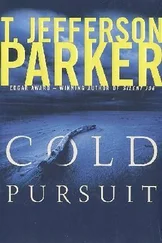It was a struggle to tuck in the sheets and army blankets issued by Housing. She had to duck her head to clear the ceiling while kneeling on the bunk itself, and every time she moved, her knees twisted all previous smoothings. She wanted to scream.
What is my problem? she asked herself. I’ve hiked or skied to fourteen of Colorado’s highest summits and have kayaked the Grand Canyon, camping in the most primitive conditions — loving every minute! — so why does this room seem so stark?
The woman on the upper bunk of the bed to her right began to snore loudly. Valena stared across the dim room toward her, wondering how anyone could fall asleep in such a setting.
She lay down on her back and stared at the ceiling. Time inched by. It was past 9:00 p.m., perhaps 10:00. Her stomach growled, reminding her that she had left her flight lunch in Bellamy’s office. She tried to push hunger out of her mind by meditating on the landscape she had witnessed after leaving the Chalet. Too upset to think straight, she had marched the short distance out to the edge of the slope that led down toward the salt ice of McMurdo Sound and stared at the towering peaks of the Transantarctic Mountains, which marked the edge of the continent. Ross Island, where she stood, was separated from them by at least thirty miles of frozen ocean.
In the broad daylight of a springtime evening seventy-seven degrees south of the equator, the mountains had danced alluringly. Everything south of the Antarctic Circle saw daylight for the six months of the year that the South Pole faced toward the sun during its annual revolution and darkness during the six months it faced away, so during Valena’s planned eight-week visit, the sun would not set.
But George Bellamy had just told her that she would not be staying even one week. She willed herself to forget her fears and cherish this first solo moment with the land she had longed to meet, but the sting of disappointment was too intense to overcome, and after a short while she had turned toward Building 155, where this horrifying room awaited her. Now her only view was of the stains in the ceiling. She mapped them slowly, trying to trace a route that would lead her out of her troubles.
Half an hour later, she was still staring at the ceiling when another of her bunkmates came into the room. Valena closed her eyes and pretended to be asleep. She was too wired and too tired to talk to strangers, and her old bugaboo of feeling isolated in a crowd had set in with unusual force. She had heard stories about McMurdo, that people came here the first time for the adventure, a second time for the money, and the third and every other time because they had figured out that they fit in nowhere else. Did she fit in here?
The unseen roommate stepped quietly through the room, making only the softest sounds of zippers unzipping and the muffled thump of shoes landing on floor, then a rustling as she slipped between the sheets. A moment later, the sound of singing erupted from the hallway, the door again opened, and two more of her roommates entered, giggling, tripping over the skis, whispering to each other to observe the request another roommate had posted—DAY SLEEPER, GOING ON SHIFT AT MIDNIGHT, HAVE A HEART. It took them twenty minutes of muffled laughter and thumping around to settle down. Saturday night in Antarctica.
Finally, from sheer exhaustion, Valena slept. When she opened her eyes next she had no idea what time it was. The light that filtered through the sheet someone had tacked up over the window was every bit as bright as it had been when she fell asleep. Soft breathing and gentle snoring rose from all the pillows around her. She began to doze again herself, so tired that her body seemed to be spinning. This jolted her awake, and another quarter hour passed before she again found sleep.
The next time she awoke, there was no getting back to sleep. She rose, grabbed her toilet kit and a change of clothes, and went looking for the shower room, which proved to be as Spartan as the bunk room.
Ten minutes later, freshly washed and dressed in clean jeans and a purplish-blue turtleneck sweater, she shrugged her way into the big red parka, grabbed her backpack, which held her laptop computer, and set off in search of her office at Crary, the science laboratory on station where all grantees were given office space. If she had only three days to figure out how to not get sent home, she figured she’d better get cracking.
Apart from the shadows on the far mountains being cast to her right instead of her left, Sunday morning looked surprisingly like Saturday evening. The wind had picked up, blowing grit from between the broken sheets of ice that covered what passed for a street, and even with her parka cuddled to her chin and the hood up, the cold bit quickly through her blue jeans. She began to shiver.
She hurried down a path and up to a stile that crossed a gang of eighteen-inch-diameter pipes that snaked between buildings. She ran up the steps and down the other side and crossed to the steel building with the big refrigerator doors that had been referenced during the in-brief. Insulating her hand with the cuff of one parka sleeve, she grabbed a steel door handle and slipped inside the airlock.
The inner doors of the airlock were locked.
Remembering the card key that had been issued to her when she had picked up her dorm room key the evening before, she dug through the pockets of the big red parka, ran the card through the slot in the card reader, and continued inside.
The interior of the building felt a little more like home: pale, institutional, off-white walls with glass display cases. The nearest one was filled with dinosaur bones collected out in the Transantarctic Range, remnants of a long-ago time when the whole continent lay closer to the equator, making it warm enough for lizards. Posters explaining scientific findings of various research projects papered the walls. Hallways branched off to left and right, and a long ramp led downhill to more halls as the building descended the side of the bluff on which it had been constructed. She turned and headed along a short hallway to the left, instinctively searching out the administrative offices.
There was no one present at any of the desks in the office marked DIRECTOR. Of course — it’s Sunday , she reminded herself. That’s the one day Raytheon Polar Services gives its personnel. They explained that at the in-brief.
As she walked back down the hallway toward the entrance, Valena spied a dark-haired woman sitting at a desk inside another office. She paused. The nameplate beside her door read BRENDA UTZON. “Can I help you?” the woman asked kindly, peering at Valena over her glasses.
Valena braced as the woman’s gaze slid over her face, taking in what everybody noticed: the unusual angles and curves of bone and flesh, the seemingly mismatched colors of her skin and eyes. Even though people usually liked what they saw, their evident surprise told her again and again that she was different. She muttered, “I’m, um, looking for my office. I just arrived.”
“What event number?” the woman asked.
“What event? Oh, yeah, my project number. I’m with Emmett Vanderzee’s group. 1-543.”
“Oh, you must be Valena Walker. I’m so sorry about Emmett.”
“What happened?” she asked. Bellamy might have told her to keep her mouth shut about what he’d told her, but if other people wanted to open theirs, well, what was the harm in that?
“Oh, you don’t know? You poor thing. Well, they didn’t tell us much, either, but in a place like this you can’t really hide anything. We saw the marshal take him into custody.”
“Into… custody? Wait, Bellamy said—”
Читать дальше












